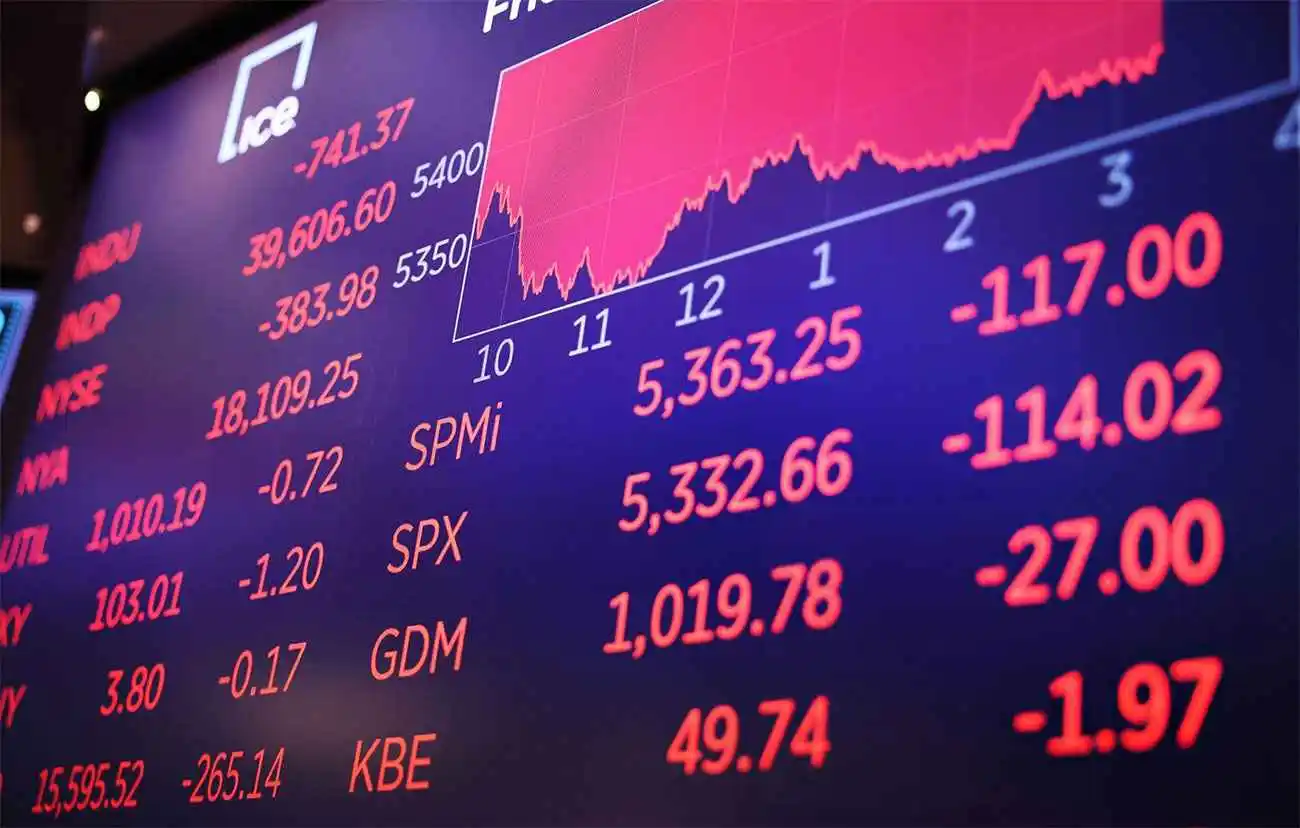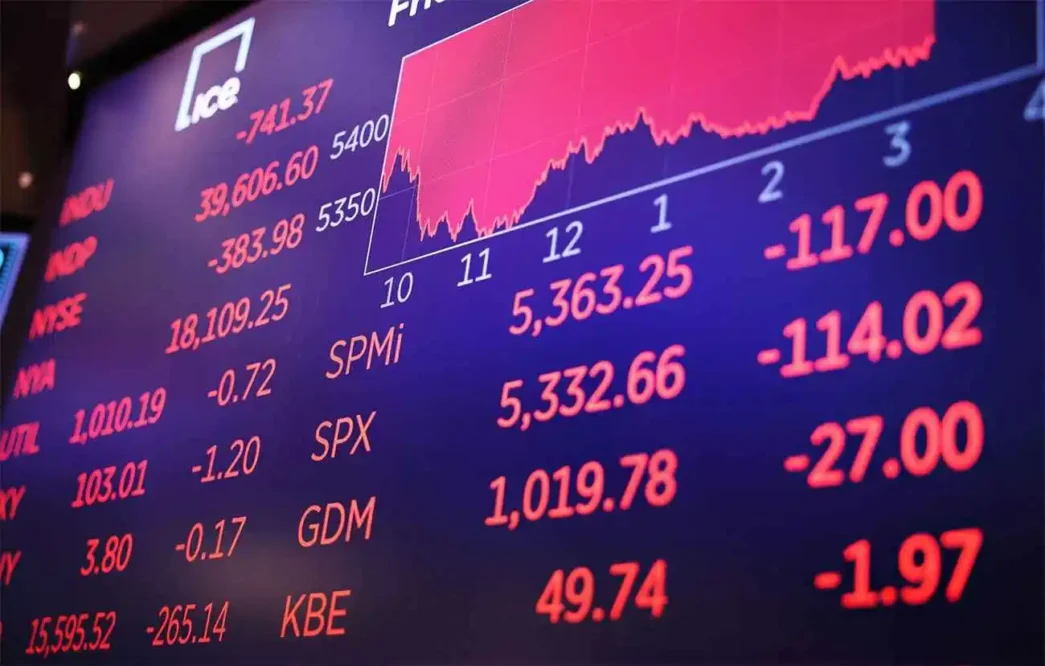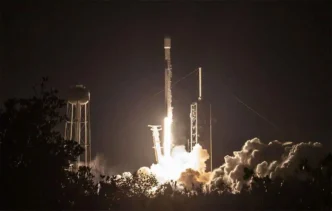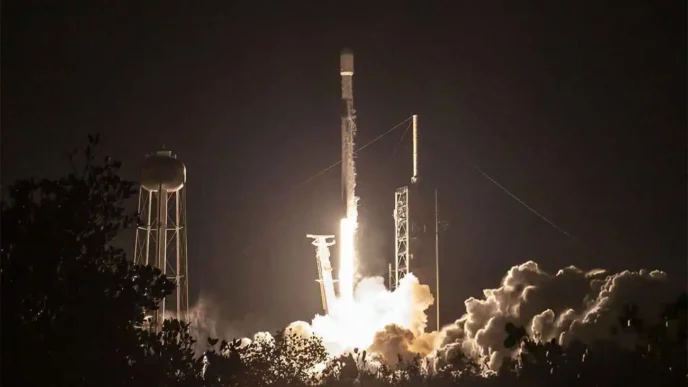The stock markets took a nosedive this week, and the culprit seems clear: growing uncertainty surrounding President Donald Trump’s aggressive tariff plans. Investors are rattled, recession fears are mounting, and Wall Street’s latest sell-off has erased billions in value practically overnight. The Dow Jones Industrial Average dropped 890 points on Monday alone, while the S&P 500 slipped below its 200-day moving average for the first time since November 2023. What’s driving this stock market crash, and could Trump’s tariff policies push the U.S. economy into a recession? Let’s break it down.
A Stock Market Crash Fueled by Tariff Uncertainty
Monday wasn’t just another day on Wall Street—it was the worst trading day of 2025 so far. The Dow’s 890-point plunge came after dipping as low as 1,000 points, narrowly avoiding a spot among the top 20 worst days in its history. The Nasdaq didn’t fare much better, tanking 4.2%—its biggest single-day drop since September 2022. Meanwhile, the S&P 500 lost 9% of its value in less than a month, a stark reversal from the optimism that greeted Trump’s inauguration earlier this year.
The trigger? Trump’s tariff plans, which have ignited trade wars with major U.S. partners like Canada, Mexico, and China. After threatening 25% tariffs on imports from Canada and Mexico and doubling duties on Chinese goods to 20%, Trump followed through last week—only to freeze them for a month after swift backlash. This erratic policymaking has left investors scrambling. As reported by CNN, Trump’s refusal to rule out a recession during a Fox News interview on Sunday poured fuel on the fire, shaking the confidence of a market already jittery from global instability.
Why Trump’s Tariff Plans Are Shaking the Economy
Trump’s tariff strategy isn’t new—he campaigned on it, promising to restore American manufacturing and narrow trade deficits. But the scale and speed of his latest moves have caught many off guard. Targeting Canada and Mexico, two of the U.S.’s closest trading partners, alongside China, risks disrupting supply chains that have been finely tuned over decades. The Independent noted that these tariffs, combined with retaliatory measures—like Ontario’s 25% surcharge on electricity exports to the U.S.—could spiral into a full-blown trade war
Economists warn that tariffs act like a tax on American consumers. While Trump insists they’ll bring wealth back to the U.S., the reality is that companies often pass these costs onto buyers, driving up prices for everything from cars to groceries. Julia Coronado of MacroPolicy Perspectives told CNN that this “lack of vision” in Trump’s approach—attacking allies without a clear endgame—could undermine economic stability. Add in his administration’s chaotic rollout, including last-minute exemptions and reversals, and it’s no wonder stock markets are tumbling.
Then there’s the timing. Consumer confidence is already softening, hiring slowed sharply in February, and retail sales dropped unexpectedly in January. Trump inherited a strong economy from Biden, with low unemployment and cooling inflation, but his “shock-and-awe” policies might be the spark that tips it into recession territory. As Larry Summers ominously told CNN, we’re entering a “challenging time.”
Recession Fears: Are They Justified?
The word “recession” is on everyone’s lips, but is the panic overblown? The U.S. economy has defied doomsday predictions before—shaking off rate hikes in 2022 and a rising unemployment scare in 2024. The Federal Reserve remains cautiously optimistic, and Monday’s stock market crash could simply be a correction in an overvalued market. After all, the S&P 500 was trading at record highs just weeks ago
What’s Next for Stock Markets and the Economy?
For investors, the volatility is a double-edged sword. Some see a buying opportunity in this dip, while others brace for more pain if trade wars escalate. Companies like General Motors and Ford, hit hard by tariff threats, saw shares rebound slightly after exemptions, but the uncertainty lingers. Even Elon Musk, a Trump ally, felt the sting—losing $18.8 billion in net worth as Tesla’s stock slumped, per the Independent.















